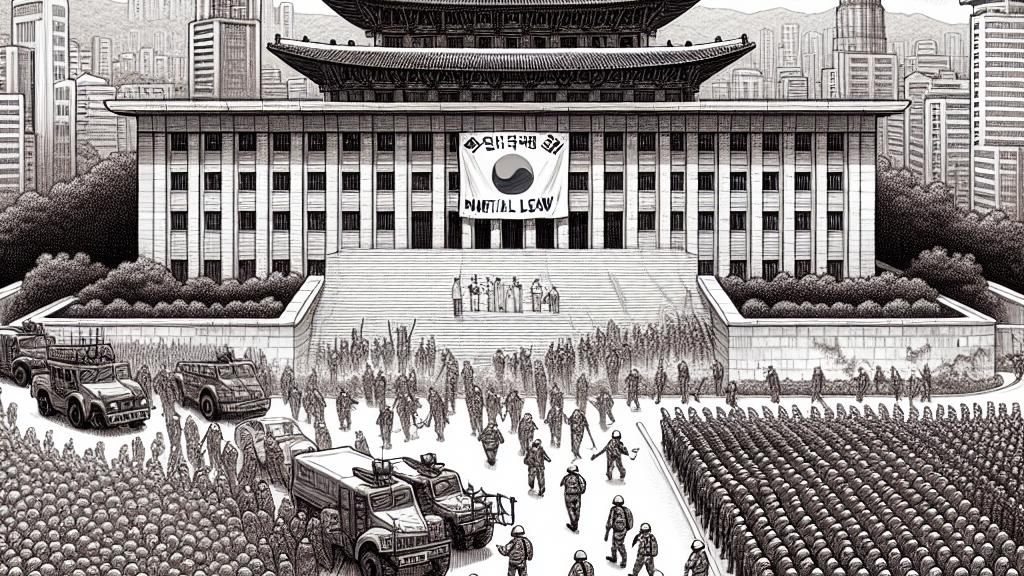South Korea President Lifts Martial Law and Withdraws Troops from National Assembly
Overview
- In a bold move, President Yoon Suk-yeol has officially lifted the martial law that surprised many in South Korea.
- Following a unanimous resolution from the National Assembly, troops stationed around the legislative body have been withdrawn, marking a significant return to normalcy.
- This action underscores the Assembly's authority and reaffirms the vital principles of democracy amidst political tensions.

Context of the Declaration
On December 3, 2024, South Korea's political landscape was shaken when President Yoon Suk-yeol announced the declaration of martial law, a drastic action framed as a response to an increasing tide of opposition hostility. The ruling party faced significant challenges, with the opposition pushing through measures to block crucial budget proposals and attempting to impeach government officials, culminating in an air of tension across the country. However, the martial law declaration proved to be short-lived. Within mere hours, the National Assembly—the very body that Yoon sought to exert control over—crafted and passed a unanimous resolution demanding the immediate lifting of martial law, showcasing a remarkable display of legislative power. Acknowledging the overwhelming consensus among lawmakers, Yoon promptly convened a Cabinet meeting on the morning of December 4 to announce the repeal of his earlier decree. This rapid unfolding of events reveals not just the contentious dynamics of South Korean governance but also highlights the resilience of democratic institutions that prevent unilateral executive overreach.
Political Ramifications
The swift lifting of martial law is a defining moment, breathing life back into South Korea’s democratic ethos. Initially, Yoon rationalized his heavy-handed approach by alleging that the opposition engaged in treasonous activities that threatened the nation's stability. Yet, this tactic backfired spectacularly, as the national legislative body quickly rallied to protect its rights. The swift backlash from the National Assembly, which reaffirmed the democratic principles of its governance, serves as a powerful reminder that balance of power is crucial. In a political landscape characterized by polarized views, the unified effort of legislators—regardless of party affiliation—illustrates a shared commitment to uphold the tenets of democracy. The broader implications of this moment resonate with historical echoes of past struggles against authoritarianism, prompting citizens to remain vigilant and engaged in ensuring that democratic norms prevail. As those with memory of the tumultuous Gwangju Uprising know all too well, the price of freedom demands active participation from the populace in safeguarding against potential overreach by those in power.
Historical Perspective
To grasp the full significance of the recent events, one must delve into South Korea's rich and often turbulent history. The declaration of martial law prompts memories of Park Chung-hee's regime in the 1970s—a period characterized by brutal suppression of dissent and civil liberties. Back then, similar emergency measures resulted in profound societal scars, with many individuals facing persecution for speaking out. Today, as South Korea finds itself at a crucial juncture, it is essential to reflect on the lessons learned from these historical events. Citizens are well aware that an erosion of democratic rights can begin with seemingly innocuous measures, leading to long-term consequences. This urgency is echoed in the hearts of many who take to the streets to voice their displeasure whenever they perceive threats to their freedoms. Thus, the rapid unwinding of martial law demonstrates not only the fluidity of political power in South Korea but also signifies a recommitment to the principles of democratic engagement that citizens have fought to protect across generations.

Loading...